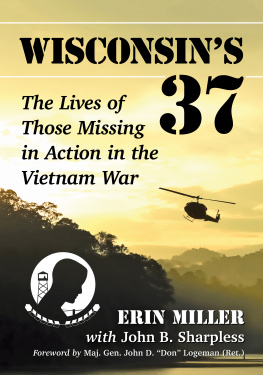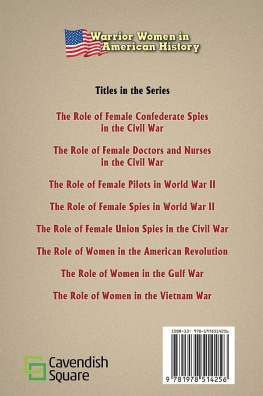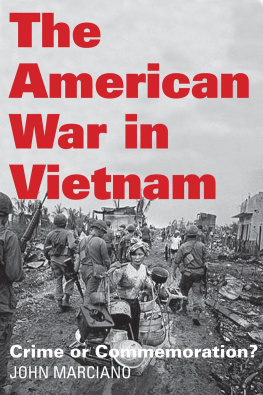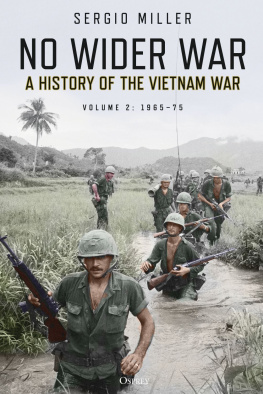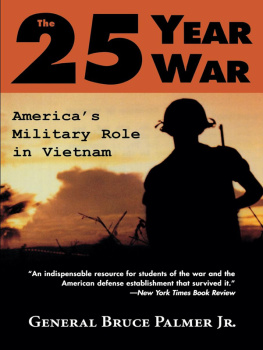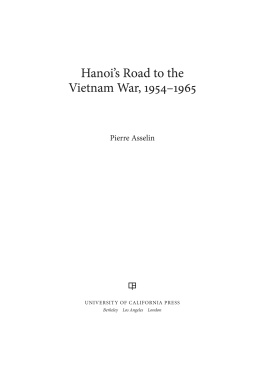War and Responsibility
CONSTITUTIONAL LESSONS OF
VIETNAM AND ITS AFTERMATH
John Hart Ely
PRINCETON UNIVERSITY PRESS
PRINCETON, NEW JERSEY
Copyright 1993 by Princeton University Press
Published by Princeton University Press, 41 William Street,
Princeton, New Jersey 08540
In the United Kingdom: Princeton University Press,
Chichester, West Sussex
Cover photograph 1993 James Pipkin
All Rights Reserved
Library of Congress Cataloging-in-Publication Data
Ely, John Hart, 1938
War and responsibility : constitutional lessons of Vietnam and its aftermath / John Hart Ely.
p. cm.
Includes bibliographical references and index.
1. War and emergency powersUnited StatesHistory. 2. War Declaration ofUnited StatesHistory. 3. Vietnamese conflict, 19611975United States. I. Title.
KF5060.E58 1993 342.73'0412dc20 [347.302412] 92-45769
ISBN 0-691-08643-5
ISBN 0-691-02552-5 (pbk.)
eISBN 978-0-691-21959-2
R0
Had there been a war, after all? There had been something, all right. Something. Something there was that turned us into a people who know we cant believe anybody anymore, including ourselves.
This was just about the saddest wars ending a man ever went to.
Russell Baker, 1973
Preface
The cold war changed us. We used to be pretty much what we started out to be: a republic that expected normally to be at peace.
Daniel Patrick Moynihan
THE COLD WAR has bequeathed America a number of legaciesa sense of permanent emergency; a consequent condition of continuous large-scale military preparation; covert military operations of a sort we never ran or sponsored before; the infectious attitude of secrecy, even dishonesty, to-ward the American people that such operations necessarily involve us in; the ruinous borrowing required to finance it all.
This book is about another legacy of the Cold Warunfortunately its about dishonesty toothe disappearance of the separation of powers, the system of checks and balances, as it applies to decisions to go to war. Contrary to the words and unmistakable purpose of the Constitution, contrary as well to reasonably consistent practice from the dawn of the republic to the mid-twentieth century, such decisions have been made throughout the Cold War period by the executive, without significant congressional participation (or judicial willingness to insist on such participation). It is common to style this shift a usurpation, but that oversimplifies to the point of misstatement. Its true our Cold War presidents generally wanted it that way, but Congress (and the courts) ceded the ground without a fight. In fact, and this is much of the message of this book, the legislative surrender was a self-interested one: Accountability is pretty frightening stuff.
A number of people helped me develop the ideas in this book. Among academic colleagues, Bill Van Alstyne, Jules Lobel, and Lori Damrosch were unusually generous and helpful, though overall I have probably profited most from the input of my students. (A pity such talented and distinctive young people get lost so soon in gargantuan law firms.) Several national security law classes at Stanford argued the ideas contained in this book with me to my great profit. (You will also find several of their papers quoted herein.) Earlier versions of appeared in 1990 in the Stanford Law Review (where Matt Nosanchuk and Susan Pilcher proved helpful editors); an earlier version of the appendix (since seriously amended) appeared in a 1988 Columbia Law Review article (where Crystal Mayner played the same useful role). Stanford blessed me over the years I was working on this with a succession of unusually capable research assistantsDan Bagatell, Nicole Cook, Ted Cooperstein, Jim Lico, Peter Savich, and Maria Tai Wolffand Chrish Peel creatively commented on drafts of some of the chapters. For typing and retyping the manuscript I have only myself to thankinsidious development, word processorsbut I couldnt have done so if my secretary, Cele Hom, hadnt taken over the management of much of the rest of my work. (Just as well: Shes the better manager, I the better typist.) Finally, thanks are due to Carolyn Gunn, who helped me with just about everything over the past decade.
War and Responsibility
CHAPTER 1
The Constitutional Framework
This system will not hurry us into war; it is calculated to guard against it. It will not be in the power of a single man, or a single body of men, to involve us in such distress; for the important power of declaring war is vested in the legislature at large ....
James Wilson
I didnt have to get permission from some old goat in the United States Congress to kick Saddam Hussein out of Kuwait.
George Bush
ONE of the recurrent discoveries of academic writing about constitutional lawan all but certain ticket to tenureis that from the standpoint of twentieth-century observers, the original understanding of the documents framers and ratifiers can be obscure to the point of inscrutability. Often this is true. In this case, however, it isnt. The power to declare war was constitutionally vested in Congress.
There were several reasons for the founders determination to vest the decision to go to war in the legislative process. The one they mentioned most often is the most obvious, a determination not to let such decisions be taken easily. The founders assumed that peace would (and should) be the customary state of the new republicJames Madison characterized war as among the greatest of national calamities To invoke a more contemporary image, it takes more than one key to launch a missile: It should take quite a number to start a war.
Two other rationales that played a role can be highlighted by examining the (debated) decision to involve the House of Representatives in the decision to go to war. The House was certainly not included because of any perceived expertise: Indeed, because of its assumed lack thereof it was excluded from such foreign policy processes as the approval of treaties. Rather, authorization by the entire Congress was foreseeably calculated, for one thing, to slow the process down, to insure that there would be a pause, a sober second thought, before the nation was plunged into anything as momentous as war. (Occasionally there wont be time for such deliberation, but we shall see that that is something the framers foresaw and accommodated.)
The House was included for another reason as well, that it was conceived as the peoples house: Given the way the burdens of war get distributed, it was felt that the peoples representatives should have a say. (It was felt further that the involvement of the peoples representatives would increase the participation of the people themselves in the debate.) The requirement of authorization by both houses of Congress was thus also calculated to increase the probability that the American people would support any war we entered into. The founders didnt need a Vietnam to teach them that wars unsupported by the people at large are unlikely to succeed. (Indeed, the difficulties of keeping the colonial troops in the field during the Revolution provided the beginnings of a similar lesson.)
This point applies a fortiori to the legislature. Unless Congress has unequivocally authorized a war at the outset, it is a good deal more likely later to undercut the effort,
It is true that an early draft of the Constitution vested the power to make war in Congress, and this language was changed during the editing process to the power to declare war. This change was made for two reasons.


